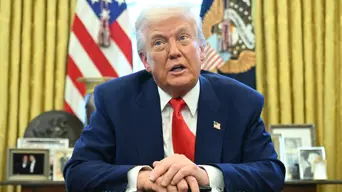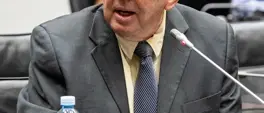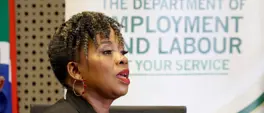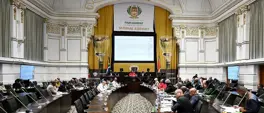Trump administration backs renewal of Africa trade initiative
AFP
2 October 2025 | 3:25The official's comments came shortly after the African Growth and Opportunity Act (AGOA) expired Tuesday, in a development likely to hurt African exporters to the US market.

FILE: US President Donald Trump
WASHINGTON - President Donald Trump's administration supports a one-year extension of an initiative allowing African countries duty-free access for certain products entering the United States, a White House official told AFP on Wednesday.
The official's comments came shortly after the African Growth and Opportunity Act (AGOA) expired Tuesday, in a development likely to hurt African exporters to the US market.
AGOA, a cornerstone of trade relations for 25 years, allowed the United States to buy billions of dollars of duty-free cars, clothes and other items from select African countries each year.
But even as top Trump administration officials gave off-the-record assurances to African leaders and business representatives that the initiative would eventually be renewed, the extension has not taken place so far.
Pankaj Bedi, CEO of the United Aryan factory in Kenya - which exports Wrangler and Levi's jeans under the deal - earlier said that US lawmakers signalled AGOA could still be renewed retroactively in November.
But a cloud of uncertainty hangs over the 32 countries eligible for preferential treatment under AGOA, with numerous jobs on the line.
Bedi earlier warned that he might have to fire 1,000 of his 10,000 workers.
While Kenya received the lowest rate among Trump's sweeping global levies - a 10% tariff - AGOA's expiration will see its goods facing higher duties.
This could push buyers to cheaper producers in other countries.
Since April, rising US tariffs have raised duties on many products, regardless of AGOA preferences, said the UN trade and development agency UNCTAD this week.
With AGOA's expiration, country-specific and sectoral tariffs would apply on top of most-favoured-nation rates, instead of preferential treatment, UNCTAD added.
"This sudden jump in tariffs could disrupt long-standing trade relations and severely disadvantage African exporters, particularly in highly protected sectors like textiles and apparel, where AGOA has so far provided critical market access," UNCTAD said.
Get the whole picture 💡
Take a look at the topic timeline for all related articles.
















